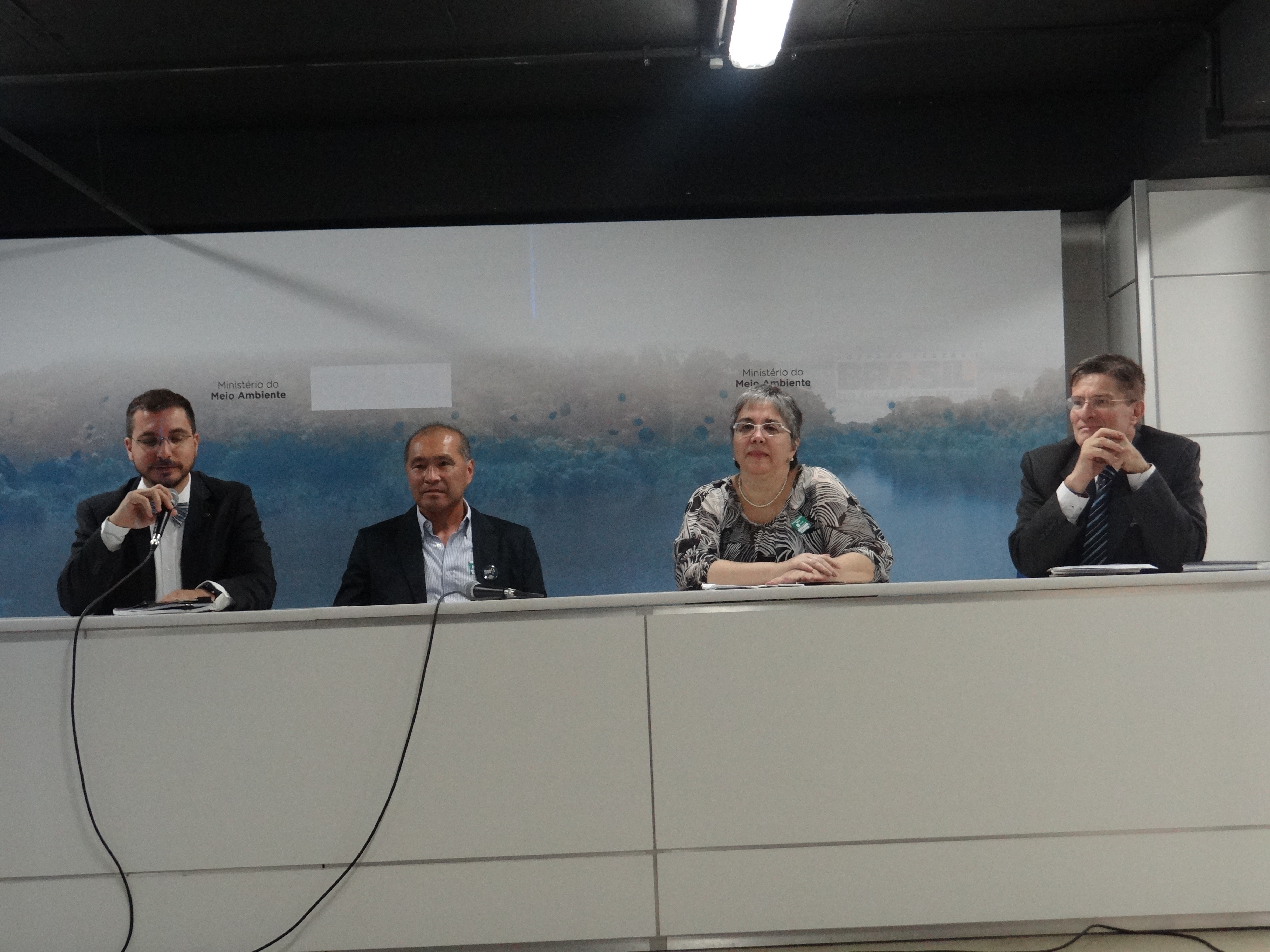
Conservation of pollinators will be public policy in Brazil
Event brings together experts, university researchers and international and civil society organizations.
By: Rafaela Ribeiro - Editor: Marco Moreira
The Ministry of the Environment (MMA) It is tracing the general outlines for a public policy to pollinators. The subject is being discussed by experts in the field, university researchers and international organizations and civil society organizations on Monday and Tuesday (30 is 31/03), In Brasilia, during the seminar GEF Biodiversity Pollinators and Agriculture.
"The idea is to take advantage of all experience, using it as a cornerstone for recovery and return policy conservation of pollinators in Brazil ", He explained the Deputy Secretary for Biodiversity and Forests, Sergio Collaço, the opening of the meeting. There are three main lines of work: pesticide control to prevent impact on pollinator species; reverse and prevent loss of pollinator species; and be able to move forward with technologies for economic use of pollinators.
CONCERN
The representative of the Food and Agriculture Organization (FAO Brazil), Alan Jorge Bojanic, He expressed great concern about the loss of pollinators. "Pollinators are essential for biology and for the whole world", said. "This project has been important to produce useful information to guide us."
Pollinators show the strong relationship between protection of biodiversity and agricultural production. "Some results show increased production 60 or 70% ", said Rosa Lemos, representative of the Brazilian Biodiversity Fund (Funbio). "There is no denying the value they have for agricultural production."
The Global Project GEF / UNEP / FAO Conservation and Management of Pollinators for Sustainable Agriculture through the ecosystem approach was implemented in 2010 and ends at the end of the year. It aims to improve food and nutrition security and livelihoods, through the conservation and sustainable use of pollinators. It was implemented in seven countries: Brazil, South Africa, Desire, India, Nepal, Pakistan and Kenya. In Brazil, many activities were supported and implemented by the project, especially studies on cotton growing areas, cashew, canola, Brazil-Brazil, Apple, melon and tomato.
KNOW MORE
According to the Brazilian Agricultural Research Corporation (Embrapa), Pollination is the transfer of pollen from anthers of a flower to the stigma (part of the female reproductive system) flower of the same or another flower of the same species. The anthers are the male organ of the flower and the pollen is the male gamete. So there is the formation of seeds and fruits is necessary that the pollen grains fertilize existing eggs in the female reproductive tract.
The transfer of pollen to the stigma may occur to anther estigama the same or different flower blossom, but the same plant (self-pollination) or may be made of a flower to another in different plants (cross-pollination).
The pollen transfer may be by biotic factors, so, with the aid of living beings, or abiotic, through environmental factors, these factors can be: wind (Anemofilia), water (Hidrofilia); insects (Entomofilia), bats (Quiropterofilia), poultry (Ornitofilia).
To attract pollinators biotic plant species offer rewards, pollen, nectar, oils or even smells, used in foodstuffs or animal reproduction. Yet, not all animals seeking the rewards act as effective pollinators, many visitors are just opportunistic robbers, stealing the reward without displaying appropriate behavior to achieve an efficient pollination.
Years of co-evolution between plant and pollinator agent, favored a morphological adaptations, Physiological and Behavioral, which sometimes they have resulted in a dependency so narrow that the extinction of one leads to extinction of another.
In most global ecosystems, bees are the main pollinators. Studies on the action of bees on the environment highlight the extraordinary contribution of these insects in the preservation of plant life and also in maintaining the genetic variability.
Can be estimated near- 20 thousand species of bees. However, this number may be twice, It is necessary to conduct survey studies of bees and bee-plant interactions in the various biomes. However, due to reduced food sources and nesting sites, intensive occupation of land and use of pesticides, the populations of wild bees have been drastically reduced, endangering the entire biome in which they live. One of the difficulties in promoting the conservation of bees is the lack of knowledge about them.
In the tropics, social bees (Meliponina, Bombina e Monkey) They are among the most abundant flower visitors. In Brazil, stingless bees (Meliponina) They are responsible for pollination 40 a 90% of tree species. These form, the preservation of native forests is dependent on the preservation of species.
Media advisory (Ascom/MMA) – (61) 2028.1173
Source: http://www.mma.gov.br/index.php/comunicacao/agencia-informma?view=blog&id=812


Sorry, the comment form is closed at this time.